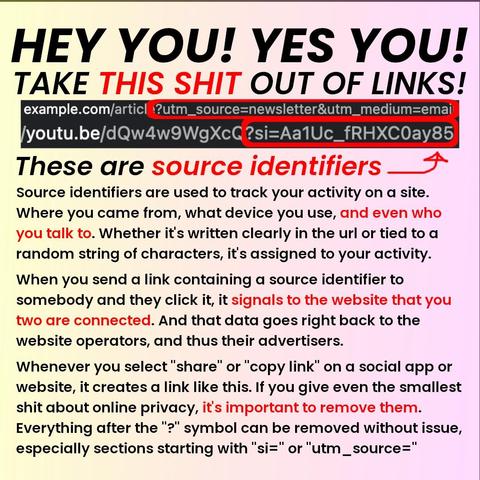Zionism is the most clear example of the shortcomings of deference politics; antisemitism is extremely real, extremely dangerous, is actively serving political utility for people who seek to harm Jewish folks, Jewish people as a cohort experience specific forms of oppression and have specific community histories of oppression that are culturally and politically relevant, and yet if you defer your personal conception of the politics around antisemitism to the majority of Jewish people you would likely default towards some form of Zionism, and a couple years ago that would be even more true.
This is just as true for every single other marginalized group. You should defer in matters of experience but be invested enough in the liberation of all people to not defer when it comes to analysis or judgment. If you're not Black you very likely can't learn crucial aspects of Black history and Black oppression without listening to Black people. That does not mean that you should defer your politics to conservative Black church groups. If you're not queer you very likely can't learn crucial aspects of queer history and queer oppression without listening to queer people. That does not mean that you should defer your politics to the LGB Alliance or the Ex-Gay movement. Etc etc. And that doesn't *just* mean rejecting reactionary elements among marginalized groups, it means being invested enough to risk being wrong, it means maybe having disagreements with marginalized people whose politics you generally respect. Bernie Sanders doesn't have my politics but I generally respect him and think it's borderline inarguable that he has a solid moral center: he's also a Zionist. It would be absurd to label him as broadly reactionary, and despite him being Jewish it's entirely sensible to disagree with him on that. You should not defer that judgment because of his identity.
 nonbinary aroace
nonbinary aroace 
 | anarchist 🏴 | vegan/animal liberation | neurodivergent (AuDHD) | kind of obsessed with rabbits 🐇 | might also post about industrial and goth music, anime, games, horror, sci-fi and fantasy
| anarchist 🏴 | vegan/animal liberation | neurodivergent (AuDHD) | kind of obsessed with rabbits 🐇 | might also post about industrial and goth music, anime, games, horror, sci-fi and fantasy








